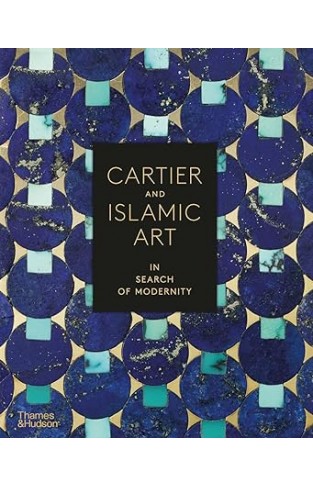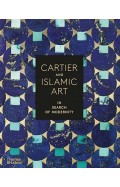- Home
- Categories
- Non Fiction
- Art. Design and Architecture
- Cartier and Islamic Art: In Search of Modernity
Cartier and Islamic Art: In Search of Modernity
By: Heather Ecker
-
Rs 17,275.50
- Rs 19,195.00
- 10%
You save Rs 1,919.50.
Due to constant currency fluctuation, prices are subject to change with or without notice.
Published to accompany a major exhibition at the Musée des Arts Decoratifs in Paris, this lavish book delves into the Cartier archives to trace the story of Louis Cartier’s love of Islamic art and the ways in which he incorporated Islam’s stylized yet abstract motifs into Cartier’s jewelry. Dazzling photographs of Cartier jewelry are accompanied by in-depth texts from a raft of distinguished scholars of both Islam and the decorative arts.
Published to accompany a major exhibition at the Musée des Arts Decoratifs in Paris, this lavish book delves into the Cartier archives to trace the story of Louis Cartier’s love of Islamic art and the ways in which he incorporated Islam’s stylized yet abstract motifs into Cartier’s jewelry. Dazzling photographs of Cartier jewelry are accompanied by in-depth texts from a raft of distinguished scholars of both Islam and the decorative arts.
Cartier and Islamic Art: In Search of Modernity
By: Heather Ecker
Rs 17,275.50 Rs 19,195.00 Ex Tax :Rs 17,275.50
Zubin Mehta: A Musical Journey (An Authorized Biography)
By: VOID - Bakhtiar K. Dadabhoy
Rs 892.50 Rs 1,050.00 Ex Tax :Rs 892.50
Viva Dictionary Of Punctuation And Hyphenation
By: William Gould
Rs 127.50 Rs 150.00 Ex Tax :Rs 127.50
And Another Thing... (The Hitchhiker's Guide to the Galaxy)
By: Eoin Colfer
Rs 355.50 Rs 395.00 Ex Tax :Rs 355.50
Collins Pocket Italian Dictionary
By: Collins Dictionaries
Rs 1,847.50 Rs 3,695.00 Ex Tax :Rs 1,847.50
No similar books from this author available at the moment.
Puzzle Book Cats: Brain-tickling quizzes, sudokus, crosswords and wordsearches (National Geographic Kids)
By: National Geographic Kids
Rs 1,015.75 Rs 1,195.00 Ex Tax :Rs 1,015.75
Zubin Mehta: A Musical Journey (An Authorized Biography)
By: VOID - Bakhtiar K. Dadabhoy
Rs 892.50 Rs 1,050.00 Ex Tax :Rs 892.50
Cartier and Islamic Art: In Search of Modernity
By: Heather Ecker
Rs 17,275.50 Rs 19,195.00 Ex Tax :Rs 17,275.50














-120x187.jpg?q6)

















